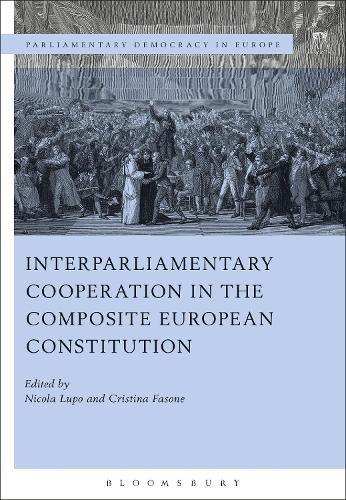
Interparliamentary Cooperation in the Composite European Constitution
(Hardback)
Available Formats
Publishing Details
Interparliamentary Cooperation in the Composite European Constitution
By (Author) Professor Nicola Lupo
Edited by Cristina Fasone
Bloomsbury Publishing PLC
Hart Publishing
19th May 2016
United Kingdom
Classifications
Tertiary Education
Non Fiction
Constitutional and administrative law: general
341.2422
Physical Properties
Hardback
384
Width 169mm, Height 244mm
812g
Description
This collection analyses the place and the functioning of interparliamentary cooperation in the EU composite constitutional order, taking into account both the European and the national dimensions. The chapters join the recent scholarship on the role of parliaments in the EU after the Treaty of Lisbon.The aim of this volume is to highlight the constitutional significance of interparliamentary cooperation as a permanent feature of EU democracy and as a new parliamentary function as well as to investigate the practical side of this relatively new phenomenon. To this end the contributors are academics and parliamentary officials from all over Europe. The volume discusses the developments in interparliamentary cooperation and its implications for the organisation and procedures of national parliaments and the European Parliament, for the fragmented executive of the EU, and for the democratic legitimacy of the overall EU composite Constitution. These issues are examined by looking at the European legislative process, the European Semester and the Treaty revisions. Moreover, the contributions take into account the effects of interparliamentary cooperation on the internal structure of parliaments and analyse the different models of interparliamentary cooperation, ie from COSAC to the new Interparliamentary Conference on Stability, Economic Coordination and Governance in the European Union provided by the Fiscal Compact.
Reviews
The greatest merit of the book is to shed light on a topic which has been significantly underexplored in the scholarly literature. -- Barbara Guastaferro, Research Fellow in Law, Durham Law School * I- Connect Blog *
The volume offers a compelling overview of the state of inter-parliamentary co-operation in the EU. It is not only extremely useful for those who are particularly interested in how national parliaments (and the European Parliament) co-operate or not, but it will also be an important reference for anyone who is studying parliamentary democracy in Europe, researchers and practitioners alike. -- Valentin Kreilinger, Hertie School of Governance and Jacques Delors Institut, Berlin * European Law Review *
The volume shows the potential of an 'effective and regular interparliamentary cooperation in the Union' which is highly supported by the Lisbon Treaty.(translated from the original Italian) -- Filippo Maria Longhi * Rivista Trimestrale del Diritto Pubblico *
...the book provides a comprehensive and interdisciplinary treatment of the key aspects of the topic, bringing together most of the leading scholars in the field...This volume will be essential reading for everyone scholars as well as practitioners seeking to gain a comprehensive understanding of how IPC in the EU has evolved, how it works and where it is headed. -- Thomas Christiansen, Maastricht University * Journal of Common Market Studies *
Interparliamentary Cooperation in the Composite European Constitution ... brings together leading and emerging scholars in the field of interparliamentary cooperation from legal and political science backgrounds along with contributions from a number of practitioners ... this edited collection makes a valuable contribution to our understanding of the significance of interparliamentary cooperation in the EU and its many and developing facets. It is a promising first volume for the new Hart Series on Parliamentary Democracy in Europe. -- Mario Mendez, Queen Mary University of London * Modern Law Review *
Author Bio
Nicola Lupo is Professor of Public Law at LUISS Guido Carli University, Rome. Cristina Fasone is Assistant Professor of Comparative Public Law at LUISS Guido Carli University, Rome.
